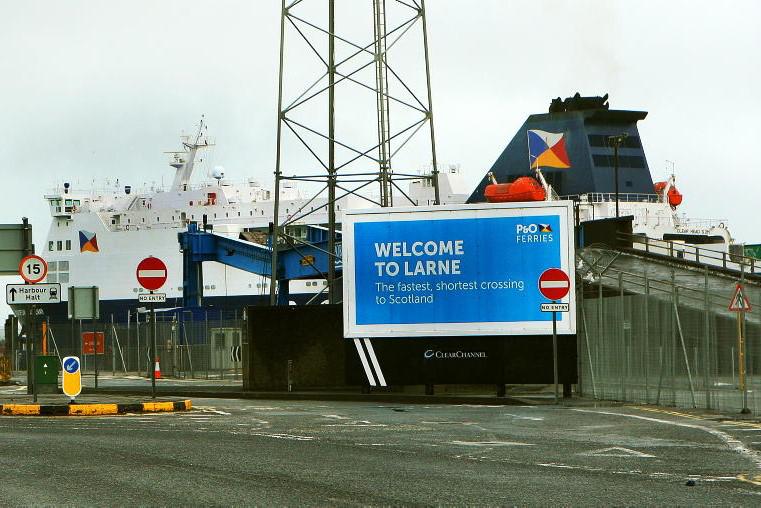Approximately 27 vets are currently required at ports to undertake inspection work on products of animal origin entering NI, but less than half that number are in place, senior DAERA officials told MLAs on the Stormont Agriculture committee last Thursday.
“At peak, we have been doing 38% of the checks we should be doing, but there have been times when we have been down as low as the mid-20s,” chief vet Dr Robert Huey acknowledged.
He said that the EU was aware of the issue, and that the staffing pressures have forced him to prioritise work that is crucial to protect the EU single market, with 100% physical inspections still done on the likes of live animal imports.
The integrated nature of UK supply chains mean that DAERA officials are faced with more checks on products of animal origin coming into NI than any single EU country. And with supermarket grace periods (which allow retail goods to move without an accompanying health certificate) due to end on 1 October, the numbers become “astronomical”, said Huey.
At peak, we have been doing 38% of the checks we should be doing
In that scenario, officials maintain that around 60 vets would be required at the ports. Describing that as “unachievable”, given competition from the private sector, etc, Huey said that a recent Veterinary Service recruitment exercise is likely to only yield between three and five new vet recruits.
In February, former Agriculture Minister Gordon Lyons told DAERA to stop recruitment of inspection staff at port facilities, so that has now constrained Huey’s ability to bring in new staff, but it is only one factor among many, he told MLAs.
He could move existing DAERA vets, but work at the ports is done in shifts, and under civil service rules he can’t force officials to change their work patterns.
“It’s not attractive work – it’s enforcement and frontline work and not something that people are lining up to do,” he said.
Permanent facilities
DAERA staff at the ports are also working out of temporary facilities, with a project to get permanent buildings in place delayed again. Facilities might not be ready until 2023, officials revealed.
The initial estimate was that new buildings would be ready by June 2021, and last month that estimate was pushed back to beyond March 2022. With contracts signed, the delay could cost government in the region of £300,000 by way of compensation.
The main issue is the uncertainty as to what will actually be required. Once the grace period for retail goods ends, it could lead to a surge in inspections, but at the same time, the UK government is working on a Digital Assistance Scheme to ease the flow of goods.
Read more
NI short of vets claims Minister
DAERA tied up in red tape at NI ports
Approximately 27 vets are currently required at ports to undertake inspection work on products of animal origin entering NI, but less than half that number are in place, senior DAERA officials told MLAs on the Stormont Agriculture committee last Thursday.
“At peak, we have been doing 38% of the checks we should be doing, but there have been times when we have been down as low as the mid-20s,” chief vet Dr Robert Huey acknowledged.
He said that the EU was aware of the issue, and that the staffing pressures have forced him to prioritise work that is crucial to protect the EU single market, with 100% physical inspections still done on the likes of live animal imports.
The integrated nature of UK supply chains mean that DAERA officials are faced with more checks on products of animal origin coming into NI than any single EU country. And with supermarket grace periods (which allow retail goods to move without an accompanying health certificate) due to end on 1 October, the numbers become “astronomical”, said Huey.
At peak, we have been doing 38% of the checks we should be doing
In that scenario, officials maintain that around 60 vets would be required at the ports. Describing that as “unachievable”, given competition from the private sector, etc, Huey said that a recent Veterinary Service recruitment exercise is likely to only yield between three and five new vet recruits.
In February, former Agriculture Minister Gordon Lyons told DAERA to stop recruitment of inspection staff at port facilities, so that has now constrained Huey’s ability to bring in new staff, but it is only one factor among many, he told MLAs.
He could move existing DAERA vets, but work at the ports is done in shifts, and under civil service rules he can’t force officials to change their work patterns.
“It’s not attractive work – it’s enforcement and frontline work and not something that people are lining up to do,” he said.
Permanent facilities
DAERA staff at the ports are also working out of temporary facilities, with a project to get permanent buildings in place delayed again. Facilities might not be ready until 2023, officials revealed.
The initial estimate was that new buildings would be ready by June 2021, and last month that estimate was pushed back to beyond March 2022. With contracts signed, the delay could cost government in the region of £300,000 by way of compensation.
The main issue is the uncertainty as to what will actually be required. Once the grace period for retail goods ends, it could lead to a surge in inspections, but at the same time, the UK government is working on a Digital Assistance Scheme to ease the flow of goods.
Read more
NI short of vets claims Minister
DAERA tied up in red tape at NI ports






 This is a subscriber-only article
This is a subscriber-only article










SHARING OPTIONS: